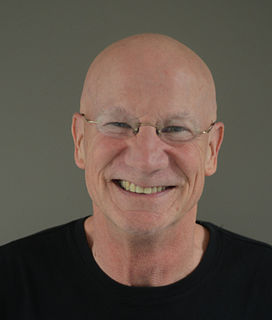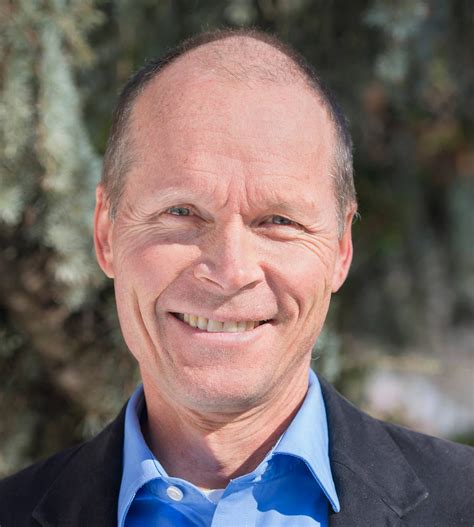A Quote by Abraham Lincoln
Will springs from the two elements of moral sense and self-interest.
Related Quotes
There is no self-interest completely unrelated to others' interests. Due to the fundamental interconnectedness which lies at the heart of reality, your interest is also my interest. From this it becomes clear that "my" interest and "your" interest are intimately connected. In a deep sense, they converge.
Unless we believe the gospel, we will be driven in all we do-whether obeying or disobeying-by pride ('self-love') or fear ('of damnation'). Apart from 'grateful remembering' of the gospel, all good works are done then for sinful motives. Mere moral effort may restrain the heart, but does not truly change the heart. Moral effort merely 'jury rigs' the evil of the heart to produce moral behavior out of self-interest. It is only a matter of time before such a thin tissue collapses.
We are all members of the same flawed species. Putting our moral vision into practice means imposing our will on others. The human lust for power and esteem, coupled with its vulnerability to self-deception and self-righteousness, makes that an invitation to a calamity, all the worse when the power is directed at a goal as quixotic as eradicating human self-interest.
Given the opportunity, under the right conditions, two cells from wildly different sources, a yeast cell, say, and a chicken erythrocyte, will touch, fuse, and the two nuclei will then fuse as well, and the new hybrid cell will now divide into monstrous progeny. Naked cells, lacking self-respect, do not seem to have any sense of self.
We are driven by self-interest, it’s necessary to survive. But we need wise self-interest that is generous and co-operative, taking others’ interests into account. Co-operation comes from friendship, friendship comes from trust, and trust comes from kind-heartedness. Once you have a genuine sense of concern for others, there’s no room for cheating, bullying or exploitation.
Ultimately a highly complex sentiment, having its first origin in the social instincts, largely guided by the approbation of our fellow-men, ruled by reason, self-interest, and in later times by deep religious feelings, confirmed by instruction and habit, all combined, constitute our moral sense or conscience.
People with self-respect exhibit a certain toughness, a kind of moral nerve; they display what was once called *character,* a quality which, although approved in the abstract, sometimes loses ground to the other, more instantly negotiable virtues.... character--the willingness to accept responsibility for one's own life--is the source from which self-respect springs.

































